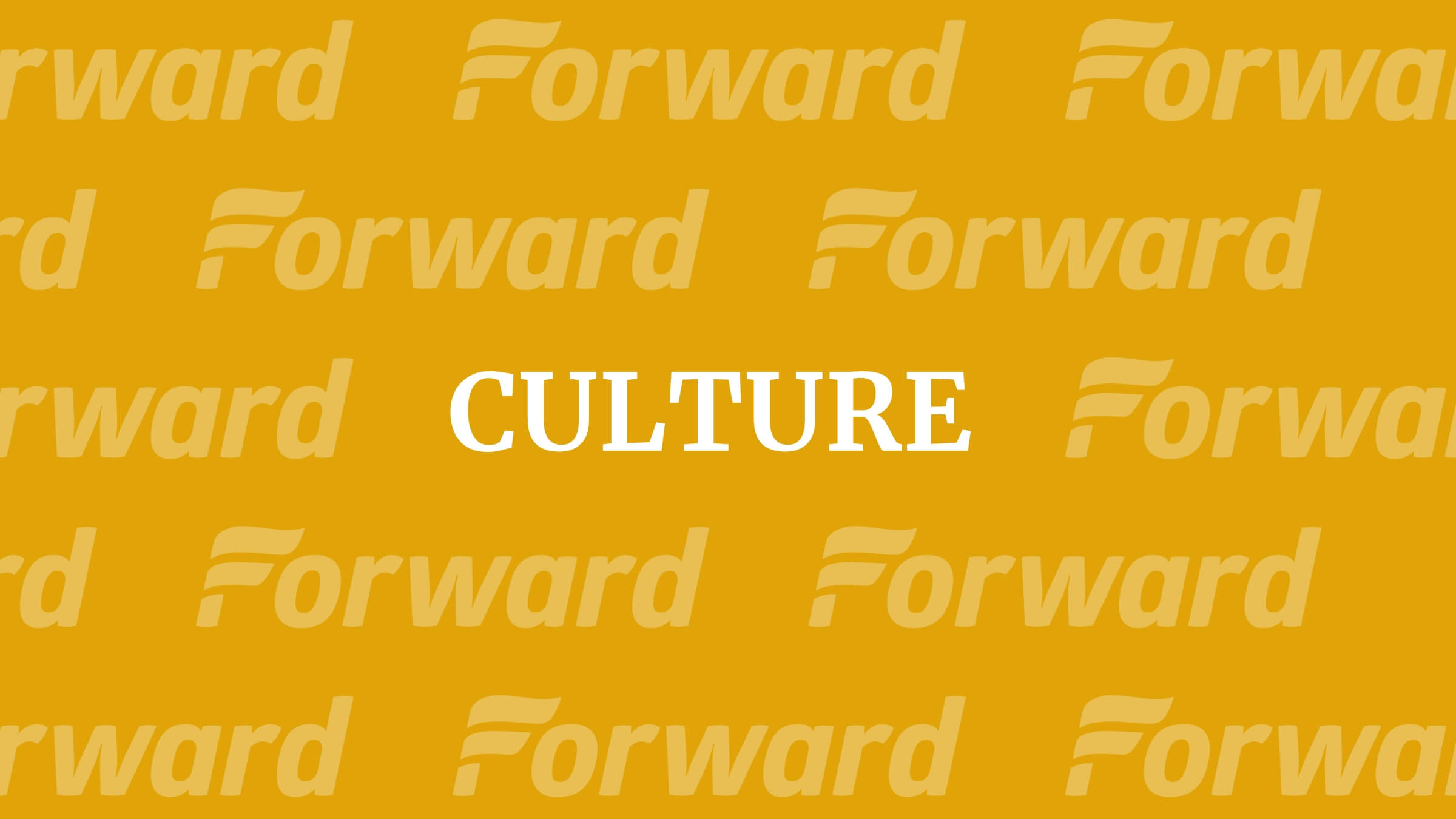In stories told through puppets, haunting tales of generational trauma
With ‘Paper Cut,’ Israeli artist Yael Rasooly has found a way to heal herself — and her audiences

Graphic by Angelie Zaslavsky
The show that launched Yael Rasooly’s career in puppetry began with paper cutouts in her kitchen. But it wasn’t meant to stay that way.
“I was collecting all these images of old film stars,” she told me. “I was in my living room cutting out papers, playing with images until I could actually cast people. But then it became a show.”
Paper Cut tells the story of a secretary (played by Rasooly) whose dreams of 1950s Hollywood romance turn to nightmares when they bump up against reality. The one-woman show premiered in Jerusalem in 2009, and quickly enthralled audiences. Since then, Rasooly has performed Paper Cut in Europe, Asia, and the Americas.
“The show has kind of been my school, my teacher,” she said. “It’s a mixture of different disciplines, which is why I’m attracted to puppetry in the first place.”
Rasooly, the granddaughter of a Holocaust survivor and refugees who fled Baghdad, was born in 1983 in Jerusalem. “I grew up as a very sensitive child and I absorbed a lot of what was said and unsaid,” she said.
She originally trained as a classical singer and pianist, and by age 15, she was performing as a soloist with the Israel Philharmonic Orchestra. Her passions weren’t limited to the performing arts, though.
“I was always painting, doing sculpture, drawing,” she said. “When I had to decide what I was going to study, it was painful because I didn’t want to choose.” Ultimately, she settled on studying theater design in London at Central Saint Martins College of Art, which combined her passion for both the visual and performing arts. But days spent building sets for other people left a 19-year-old Rasooly frustrated and dispirited until she saw a puppetry performance at the Battersea Arts Centre in London.
“I was shocked,” she said. “I had never seen something so creative.”
Soon after, she traveled to Charleville-Mézières, France, to attend the World Puppet Theater Festival. There, she saw puppet shows of all kinds, including a minimalist production of Romeo and Juliet performed with vegetables. “I was just a sponge, just taking everything in,” she said. ”I felt like I found my home for the first time. I saw that I could find an art form where I wouldn’t have to give up any of my passions.”
Rasooly returned to Jerusalem to study puppetry and design at the School of Visual Theatre. “I had incredible, fantastic teachers who supported me not only as an artist but as a young woman in the world, who helped me find my voice and the belief that I could do this,” she said.
There, she began to cultivate her quirky, odd, and at times haunting style, which incorporates song, music, elaborate costumes, and, of course, puppets. Her work explores themes of trauma, love, healing, and the complicated relationship between our dreams and our reality.
How Lovely, her first show, premiered in 2006 while Rasooly was still a student. It begins with a doll-like child heading off to a music lesson. As the performance progresses, it becomes something much darker as puppets made of pieces of string instruments reveal a disturbing tale of sexual violence.
“All my shows have a strong autobiographical base or inspiration,” Rasooly said.

Touring that show — well before the #MeToo movement — was immensely powerful for Rasooly, not only as an artist but also as a survivor. Audience members would stay after her shows to tell her stories of their own trauma. “I’m a big believer in artistic expression as a way to heal yourself and find your voice, to transform something horrible that happened to you into a creation that can help other people,” she said.
Ten years after the premiere of How Lovely, Rasooly was ready to tell the second chapter of her protagonist’s story.
“I felt it was time to talk about the woman she becomes,” she told me.
In 2021, Rasooly premiered Silence Makes Perfect, which she has been touring in Europe (a third chapter is planned for later this year). The show, which Rasooly performs alongside Israeli classical pianist Amit Dolberg, features some of her most complex costume work to date, including a series of grotesque masks. “Emotions, reality, experience and trauma are very complex themes and this medium is an opportunity to confront it, to meet with it in a different timezone,” she said.
Early next year, Rasooly will travel to Chicago to perform House by the Lake, an ensemble show about three sisters hiding during the Holocaust; it is based partially on interviews she conducted with survivors.
Though much of Rasooly’s work may initially appear odd or unsettling to audiences, she says that’s intentional — a means of translating an intense emotional experience in a visual way, thus creating an even greater impact. Song and music play a key role in conveying these complex emotions, too.
“In Silence Makes Perfect, we have one mask that’s kind of like a scream, duplicated again and again and again.” she said. “People are also always commenting on how beautiful they are. I think that’s so interesting, that when you translate pain outwards it can also be done with beauty.”
Yael Rasooly will be performing Paper Cut at the International Puppet Fringe Festival in NYC, a celebration of the art of puppetry, which runs from Aug. 9-13. The festival will feature performances, film screenings, workshops, panels, and a “giant puppet block party.” Rasooly will also lead a master class on Aug. 12.















